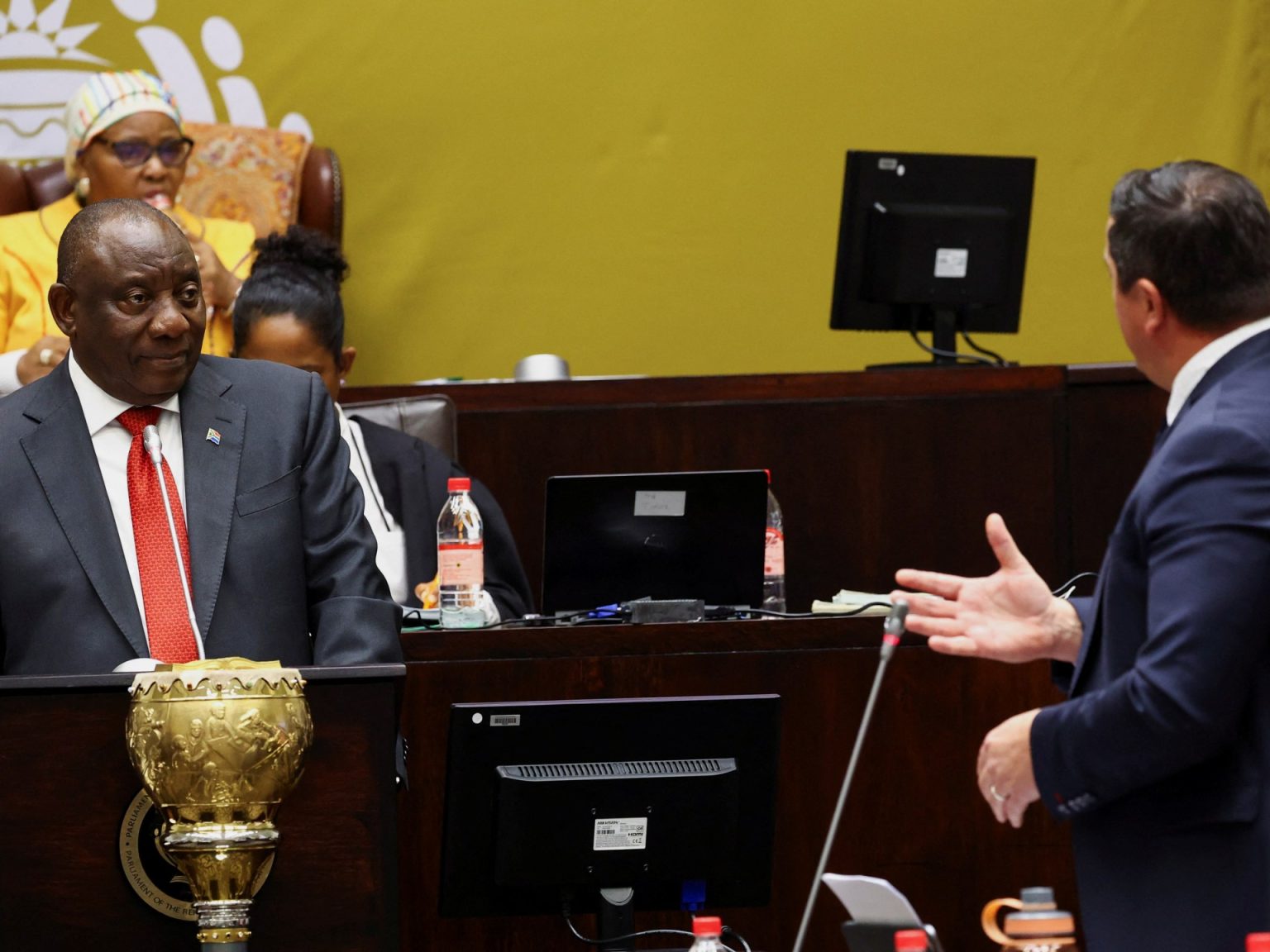In January, South Africa’s ruling African National Congress (ANC) party took Israel to the International Court of Justice (ICJ) over allegations of genocide in Gaza, receiving praise from many nations, particularly in the Global South. However, at home, support for this move was more subdued among other political parties, such as the right-leaning Democratic Alliance (DA) and the Patriotic Alliance (PA). Despite this, a coalition government has been formed, including the ANC, DA, PA, and the Inkatha Freedom Party (IFP), leading to concerns about potential changes in South Africa’s approach to Israel and Palestine.
Following the formation of the coalition government, questions arise about whether South Africa will shift its foreign policy towards a more neutral stance on the Israel-Palestine conflict. The ANC has insisted that it will maintain its solidarity with Palestinians, rooted in the country’s own historic struggle against apartheid. However, as the DA and IFP adopt more neutral positions on the conflict, there may be internal trade-offs in pursuing a pro-Palestine policy, especially after leading global efforts to hold Israel accountable for its actions in Gaza.
The DA has shifted away from its previously staunch support for Israel, now advocating for peace as a middle ground approach. Criticism has been directed at the party for its perceived lack of consistency in foreign policy, particularly in comparison to its stance on the Ukraine war. While the ANC has maintained solidarity with Palestine, it has also faced scrutiny for its relationships with other world leaders, such as Russian President Vladimir Putin, despite condemning Russia’s invasion of Ukraine. The coalition agreement may influence South Africa’s international relations decisions, with the ANC relying on the DA’s support.
As a result of the coalition agreement, decisions within the unity government will require a 60 percent consensus among the parties involved, meaning that the ANC cannot act alone on certain matters. While the ANC is unlikely to relinquish control over the international relations ministerial portfolio, the DA’s influence on policy decisions may impact the government’s approach to the Israel-Palestine conflict. Despite these potential changes, the ANC has stressed that it will not veer from its long-standing solidarity with Palestine, emphasizing the importance of human rights, constitutionalism, and a peaceful resolution of conflicts in its foreign policy principles.
The coalition government’s approach to the Israel-Palestine conflict may be affected by the differing stances of the ANC, DA, and other parties involved. While South Africa has previously taken a strong position against Israel, including accusing the country of genocide at the ICJ, the DA’s more neutral stance could influence the government’s decisions. Although the ANC is unlikely to change its position on Palestine as a party, compromises may be necessary in governing actions. The delicate balance of power within the coalition government will shape South Africa’s future approach to international relations and its involvement in the Israel-Palestine conflict.












